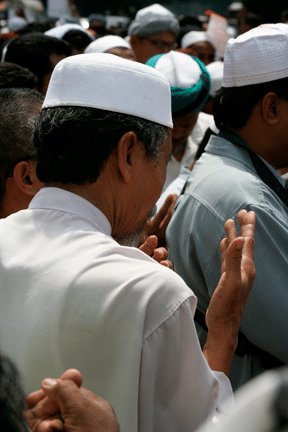Related Articles
How Dialogue Can Be Used to Witness to Muslims
Some years ago in the city of Shikarpur, West Pakistan, a blind Christian evangelist and I were invited to meet with some of the Muslim religious leaders in the courtyard of a neighborhood mosque.
How Dialogue Can Be Used to Witness to Muslims
Some years ago in the city of Shikarpur, West Pakistan, a blind Christian evangelist and I were invited to meet with some of the Muslim religious leaders in the courtyard of a neighborhood mosque.
Let’s Leave Shahada to Real Muslims
I write as a follow up to Gene Daniel’s important contribution on shahada confession, which appeared in the July 2014 issue of EMQ. The author notes that among Christian missionaries “there is disagreement about whether a believer in Christ can, with a clear conscience, say the second half, that Muhammad is his [God’s] messenger.”
Welcoming the Stranger
Presenter: Matthew Soerens, US Director of Church Mobilization, World Relief Description: Refugee and immigration issues have dominated headlines globally recently. While many American Christians view these…
Identity, Security, and Community
By Dick Brogden Jeddah, KSA. November 2019 Synopsis: God is light and in Him there is no darkness at all (1 John 1:5). It is…


